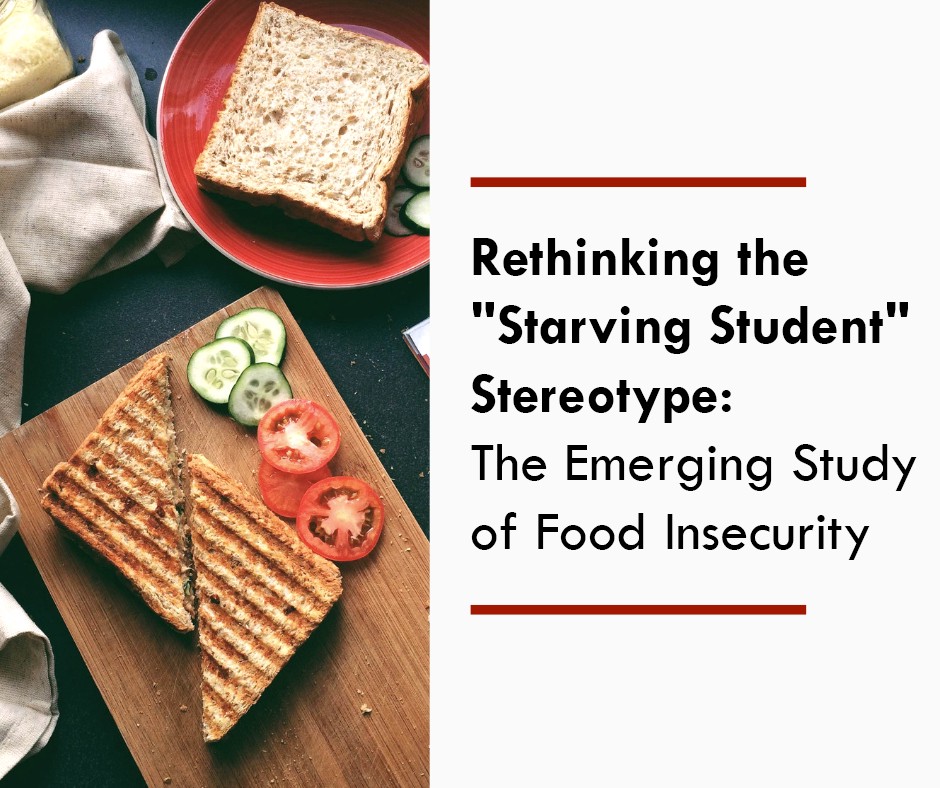By Melissa

Whether it be ramen noodles, mac and cheese, or canned soup — there’s a lot of foods that are quintessentially made for students — whether they’re cheap, convenient, or just quick and easy!
From the time we start our degrees to the time we finish — the idea of the “starving student” looms above us, whether it be just a joke, or for real. Unfortunately, amidst all the jokes about being a starving student — there’s a lot of truth to the concept.
In fact, according to data from the Hungry for Knowledge report Hungry for Knowledge report written by Meal Exchange (a national charity that seeks to encourage young people to develop sustainable food systems), 39 percent of Canadian students are going without nutritious food, and more vulnerable demographics, including Indigenous students and students of colour report even higher levels of food insecurity.
Why is this the case?

Post-secondary students are vulnerable to food insecurity due to their financial situations, including a limited earning potential, need for student loans, student debt, and rising academic expenses. Tuition fees and housing costs continue to rise. According to Statistics Canada, the average cost of tuition per year in Canada for an undergraduate degree in 1993 was $3,192, compared to $6,191 in 2015.
And, shockingly, nearly 50 percent of student respondents in the report said that they had to sacrifice buying healthy food in order to pay for essential expenses such as rent, tuition, and textbooks.
Why does it matter?
The Hungry for Knowledge report and other research shows the multitude of negative impacts food insecurity has on students who experience it.
The report found that food insecure students reported resorting to eating less, feeling hungry more often, experiencing an inability to eat nutritious food, having to resort to cheap processed foods, and developing medical problems.
Other studies have reported that food insecure students reported feeling symptoms of depressions such as low energy, low mood, fewer hours of sleep a day, little to no interest in activities, trouble concentrating, and low self-esteem.
What can we do about it here at the U of A?
Food insecurity is an issue that many Canadian students face to varying degrees as shown in the Hungry for Knowledge report, and here at the U of A, our own Campus Food Bank is trying to raise awareness and understanding of what food insecurity is.
As Cory Hodgson, the executive director of the Campus Food Bank, puts it, his team is trying to address different student needs with relation to nutrition and eating, raise awareness about the issue more generally, and dispel negative stigmas surrounding food insecurity.

“It aligns with the way that people talk about the student experience or how they imagine the student experience. You talk to students and see what they go through. I ask them questions about if they are skipping meals to save money or making poor nutrition choices. These are some of the indicators of food insecurity and I feel like a big part of our organization is trying to get us all to the point where we collectively recognize that it is not okay.”
Cory also talked about the challenges associated with student food insecurity.
“I think people have less energy if they’re not eating well. It’s so essential to our day-to-day lives and it fuels everything we do. If people are here to study and pursue academics than it’s easy to see how food insecurity would impede them from doing the best they can.”

Cory and the Campus Food Bank team are determined to dispel the stereotype of the student experience being an experience of poverty, and that it’s normal for students to have to live off of Kraft Dinner and ramen noodles.
“We have this idea that this should be expected and that we can’t really strive for better. We really want to break out of that and talk more about how everyone has a right to good nutritious food, especially when you consider that these students are studying and engaging in high level academics. Having poor nutrition as an expectation of the student experience just doesn’t make sense.”